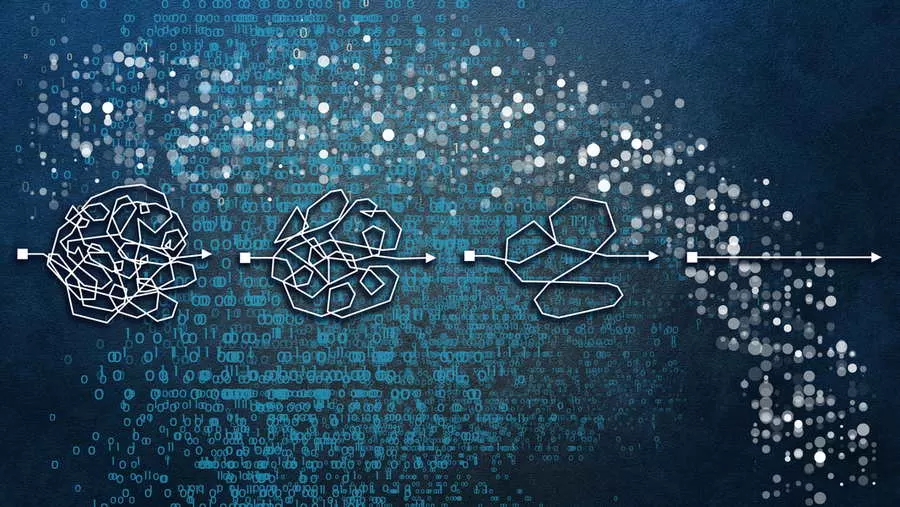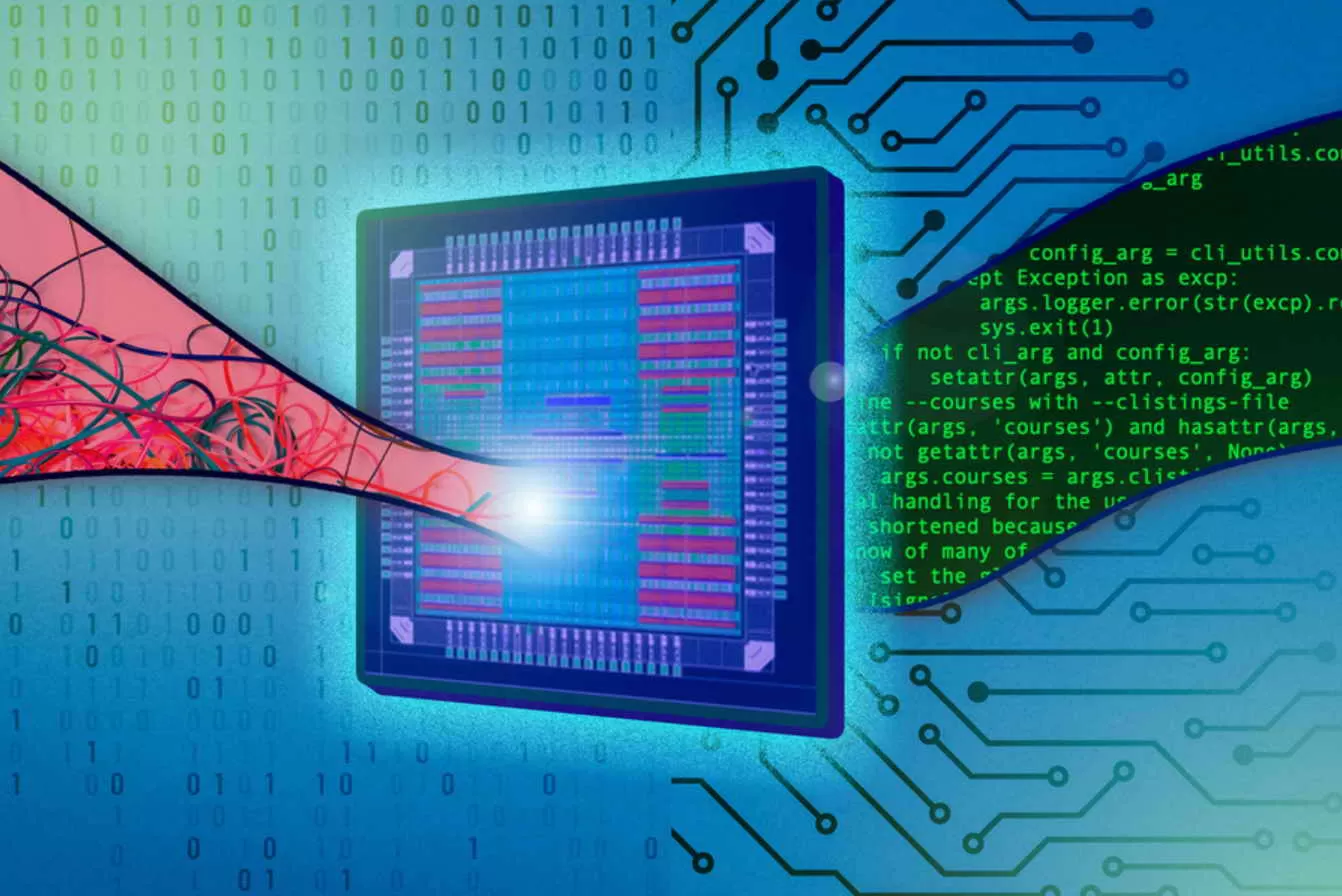The ORBGRAND Chip
The ORBGRAND chip is a new decoding chip developed by an MIT team. On February 26, 2023, at the ongoing International Solid-State Circuit Conference, a scientists team at MIT announced that they developed a new decoder chip – ORBGRAND.

According to the announcement, the ORBGRAND chip uses the universal decoding algorithm developed by MIT previously. It can decipher any encoded signal. Its data decoding is faster and more simple than traditional technology, but compared to similar hardware, its power consumption is only 1% to 10%. We can also understand it like this: The chip’s performance is 10 to 100 times higher than the others. The chip can be widely used in those fields requiring more power like VR and 5G.
Muriel Médard, the School of Science NEC Professor of Software Science and Engineering, a professor in the Department of Electrical Engineering and Computer Science, and a co-author of a paper presenting the new chip, described the chip as follows:
This is the first time someone has broken the 1 picojoule per bit decoding barrier. This is roughly the amount of energy required to transfer 1 bit within a system. This is a significant symbolic threshold, but it also changes the balance of the receiver, and from an energy point of view, this may be the most urgent part – we can transfer it from the decoder to other parts.
Muriel Médard

Besides Médard, the co-authors of the paper also include Arslan Riaz, a graduate student at Boston University; Rabia Tugce Yazicigil, an assistant professor of electrical and computer engineering at Boston University; Ken R. Duffy, former director of the Hamilton Institute at Maynooth University and current professor at Northeastern University, and other scholars from MIT, Boston University, and Maynooth University.
It will be helpful to understand the importance of the ORBGRAND chip if we know how data transmitters. Data is commonly transmitted in the form of bits (0 or 1). A data sender needs to encode the data and add error-correction codes at the end of the data. The error-correction code is a redundant string composed of 0s and 1s. It can be seen as the necessary info for hash verification. This info string is usually saved in a specific codebook. The decoding algorithm on the receiving end is right a verification scheme designed for this special code. It retrieves the original information that may have been confused through the specific codebook and hash structure. Usually, each algorithm is based on a specific code. Naturally, most algorithms require dedicated hardware. Therefore, a hardware device generally needs many chips to decode different data.
Before the announcement, the researchers demonstrated a universal decoding algorithm called GRAND (Guessing Random Additive Noise Decoding) that can crack any code. The principle behind it is to guess the noise that affects information transmission and then directly eliminates the noise from the received data. Then check the remaining contents in the codebook. It guesses a series of noise patterns in the order of their possible appearance.
In fact, the data we received usually carries reliable information which is also called soft information. It can help the decoder identify which parts are incorrect.
That’s why the new decoding chip is called ORBGRAND (Ordered Reliability Bits GRAND). ORBGRAND chip can use this soft information to sort the data according to the probability of errors in each bit. However, this is not as simple as sorting individual bits. The errors in the least reliable part may be the most obvious, but the errors in the 3rd and 4th unreliable parts added together may be the same as the 7th part. ORBGRAND Decoder uses a new statistical model here, which can sort the bits in this way as multiple bits together may have the same error rate as a single bit.
If your car isn’t working, soft information might tell you that it is probably the battery. But if it isn’t the battery alone, maybe it is the battery and the alternator together that are causing the problem. This is how a rational person would troubleshoot — you’d say that it could actually be these two things together before going down the list to something that is much less likely.
Médard
The team thinks this decoding method is more efficient than conventional decoders. Generally, conventional decoders only focus on the code structure, which is usually designed for the worst case.
“With a traditional decoder, you’d pull out the blueprint of the car and examine each and every piece. You’ll find the problem, but it will take you a long time and you’ll get very frustrated,” Médard explains.
According to the paper, the ORBGRAND chip will stop sorting as long as a key code is found. This is usually very fast. In addition, the chip uses parallelized logic to generate and test multiple noise patterns simultaneously to find such critical codes more quickly.

Compare to other chips, they found that ORBGRAND decoder consumed only 0.76 picojoules per bit when decoding with maximum accuracy. This smashed previous performance/energy records. It means that the energy consumption of ORBGRAND, in comparison to other equipment, is only one-tenth or even one-hundredth.
Almost all chip developers try their best to reduce power consumption. That’s absolutely one of the biggest challenges. With ORBGRAND, generating noise sequences is now so energy-efficient that other processes the researchers hadn’t focused on before, like checking the code word in a code book, consume most of the effort.
“Now, this checking process, which is like turning on the car to see if it works, is the hardest part. So, we need to find more efficient ways to do that,” she says.
The team is keeping exploring new ways to change the modulation of transmissions so they can take the efficiency advantage of the ORBGRAND Decoder chip.
As a China manufacturer of embedded hardware Smart Mirror, Vercon Technology is developing an Engineering Culture. We encourage our engineers to explore the latest technological innovations. In 2023, we will furtherly improve the power consumption performance of our products.
Overall, the development of the ORBGRAND chip has significant implications for a range of fields that require low-power decoding, including virtual reality, 5G networks, and Internet of Things (IoT) devices. It has the ability to decode signals quickly with minimal energy usage. This will enable devices to operate more efficiently with longer battery life. Additionally, this development of a universal decoding algorithm has the potential to simplify hardware design. Moreover, it reduces the costs associated with producing specialized decoding chips for different types of data.
It is worth noting that the ORBGRAND chip is still in the research phase. Perhaps the team needs more time for selling them in the market. However, it’s an exciting advancement in the field of decoding. The chip has the potential to transform a wide range of industries in the future.
[icon name=”link” prefix=”fas”] Recommended Reading:
